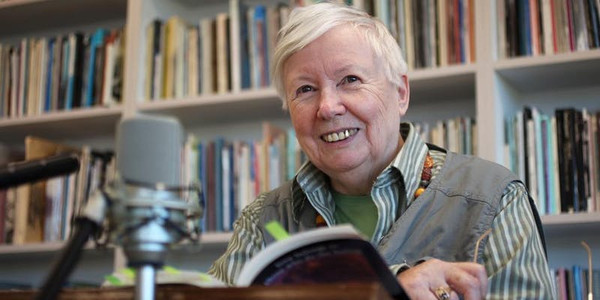Judy Grahn
Настоящее имя: Judy Grahn
Об исполнителе:
Poet, activist, and scholar Judy Grahn was born in Chicago and grew up in New Mexico. She joined the Air Force but was discharged at 21 for being openly gay. A central member of the West Coast feminist poetry movement of the 1970s into the 21st century, Grahn co-founded the Women’s Press Collective of the San Francisco Bay area, and was a founding member of the West Coast New Lesbian Feminist Movement. Grahn’s earliest poetry collections, Edward the Dyke and Other Poems (1971), She Who (1972), and A Woman is Talking to Death (1974), were reissued as The Work of a Common Woman (1978). In 1975, Olivia Records issued the LP of poetry performances by Grahn and her friend, poet Pat Parker, Where Would I Be Without You: The Poetry of Pat Parker and Judy Grahn. Her prose includes the cultural history Another Mother Tongue; Gay Words, Gay Worlds (1984); and Blood, Bread, and Roses: How Menstruation Created the World (1993). The Judy Grahn Reader (2009) includes both prose and poetry, and A Simple Revolution, an autobiography, was issued the same year by the same publisher, Aunt Lute. Her most recent collection of poetry, Hanging On Our Own Bones (2017), collects seven long narratives Grahn has called “ninepart poems” into incantatory lamentations that draw on goddess mythology and social critique. Judy Grahn (2020) serves as executive core faculty and co-director of the Women’s Spirituality Program at Sofia University in Palo Alto, CA. She also teaches Creative Inquiry and Creative Writing in the Writing, Consciousness, and Creative Inquiry Program at the California Institute of Integral Studies in San Francisco, where she earned her Ph.D. in Integral Studies with an emphasis in Women’s Spirituality. Grahn lives in the San Francisco Bay Area.

